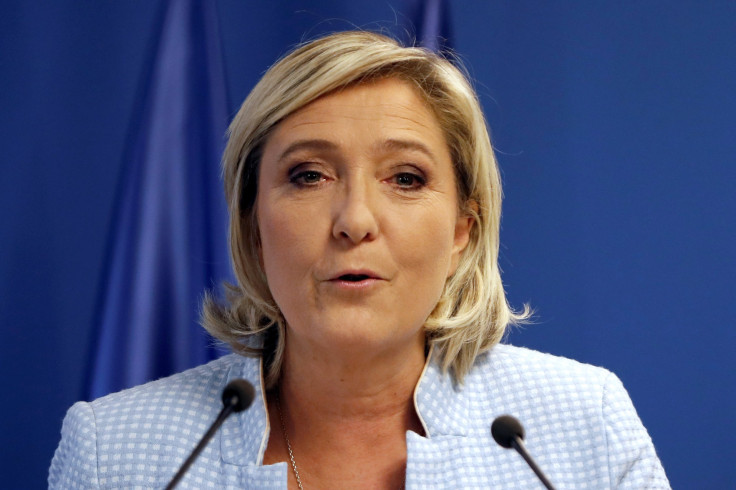Right-Wing Populism Comeback? France Could Join US, UK With A Marie Le Pen Election Win

First the United Kingdom voted to leave the European Union. Then the United States elected Donald Trump as president. Is France up next by turning to ultra-right National Front’s Marine Le Pen in a "rage-over-reason" revolt by voters?
With primary voting just two weeks away, Le Pen on Wednesday positioned herself as the next domino in the rejection of the ruling class.
Le Pen became the first French presidential candidate to comment on Trump’s election Tuesday, congratulating him before the final results were tallied — and, of course, she did it on Twitter.
“The American people are free,” she exulted.
Félicitations au nouveau président des Etats-Unis Donald Trump et au peuple américain, libre ! MLP
— Marine Le Pen (@MLP_officiel) November 9, 2016
Le Pen, 48, called Trump’s election “good news for our country,” France 24 reported. She predicted Trump’s election would herald the defeat of the Trans-Atlantic Trade and Investment Partnership between the United States and European Union, the taming of “wild globalization” and improved international relations, particularly with Russia.
"There's a global awakening," Le Pen told reporters last month. “The time of the nation-state has come again.”
Like Trump, Le Pen, who has never held elective office, and her National Front party are anti-immigration and protectionist. She has dubbed herself “Madame Frexit,” signaling her intention of ending France’s membership in the EU.
“Bit by bit, the political left and the out-of-touch and corrupt establishment is being punished by voters and driven from the seats of power,” she wrote on Facebook. “That’s a good thing, because the law comes from the people.”
She supported Trump during the campaign, although most of her rhetoric was directed against Democrat Hillary Clinton, the Guardian reported.
“Today the United States; tomorrow France,” Le Pen’s father, Jean-Marie Le Pen, 88, the founder of the National Front, tweeted.
Les Américains veulent de @realDonaldTrump qu’il soit le «Président de son Peuple». Aujourd’hui, les États-Unis, demain la France. Bravo !
Former French Prime Minister Jean-Pierre Raffarin said he sees Trump’s election as a warning the same could happen in France.
“The boundaries of reason disappeared with Brexit; the main lesson for France is that Le Pen can win,” Raffarin said.
French political commentator Philippe Marliere told the Local it’s time people looked at Le Pen seriously.
“And I would never have said that a few years ago,” Marliere said. “But Trump, with his populist, xenophobic and anti-immigrant discourse has managed to take over the most powerful democracy in the world. So why can’t it happen in France?”
Polls have indicated Le Pen is likely to make it to the final round voting but is expected to be stopped there as happened to her party in regional elections last year. But should she face former President Nicolas Sarkozy in the second round, her prospects could improve, given Sarkozy’s unpopularity on the left.
She is more likely, however, to face former Prime Minister Alain Juppe, the pollsters’ current favorite. He warned Wednesday against the “risks of demagoguery and extremism” at home.
France, like the U.K. and the U.S., has a large number of voters who feel disenfranchised amid record unemployment, rapid deindustrialization, terror attacks and the migrant crisis. There’s also the resistance to change. Especially in rural areas.
“There could be a kind of contagion effect. Disenfranchised voters will see it happen elsewhere and think, ‘Why not in France?’ ” Marliere said.
© Copyright IBTimes 2025. All rights reserved.






















